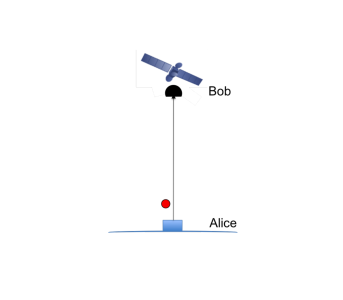Quantum Metrology for Space-Based Tests of Gravitational Physics

This study aimed to develop a framework for studying the effects of spacetime curvature on the propagation of quantum states of light, and to compare them with the propagation of classical light. When distributing entangled photon pairs through a gravitational potential, the effect of spacetime curvature on the properties of quantum states can become significant. This could be relevant for plans to use satellites for global quantum key distribution. From the fundamental point of view, situations where both quantum and relativistic effects are relevant, are expected to give physical insights.
Our methodology is to develop a general formalism, building on quantum field theory in curved spacetime, that describes the physical process of wave-packet propagation on a curved background. We then evaluate the predicted first and second order correlation function for single photon state and entangled photon pairs respectively. We then evaluate the effects of the curvature on the interference seen by a Franson-type experiment where the two interferometers are located at different positions in the gravitational potential. This will be compared against the sensitivity of experiments that are limited by single photon counting.
